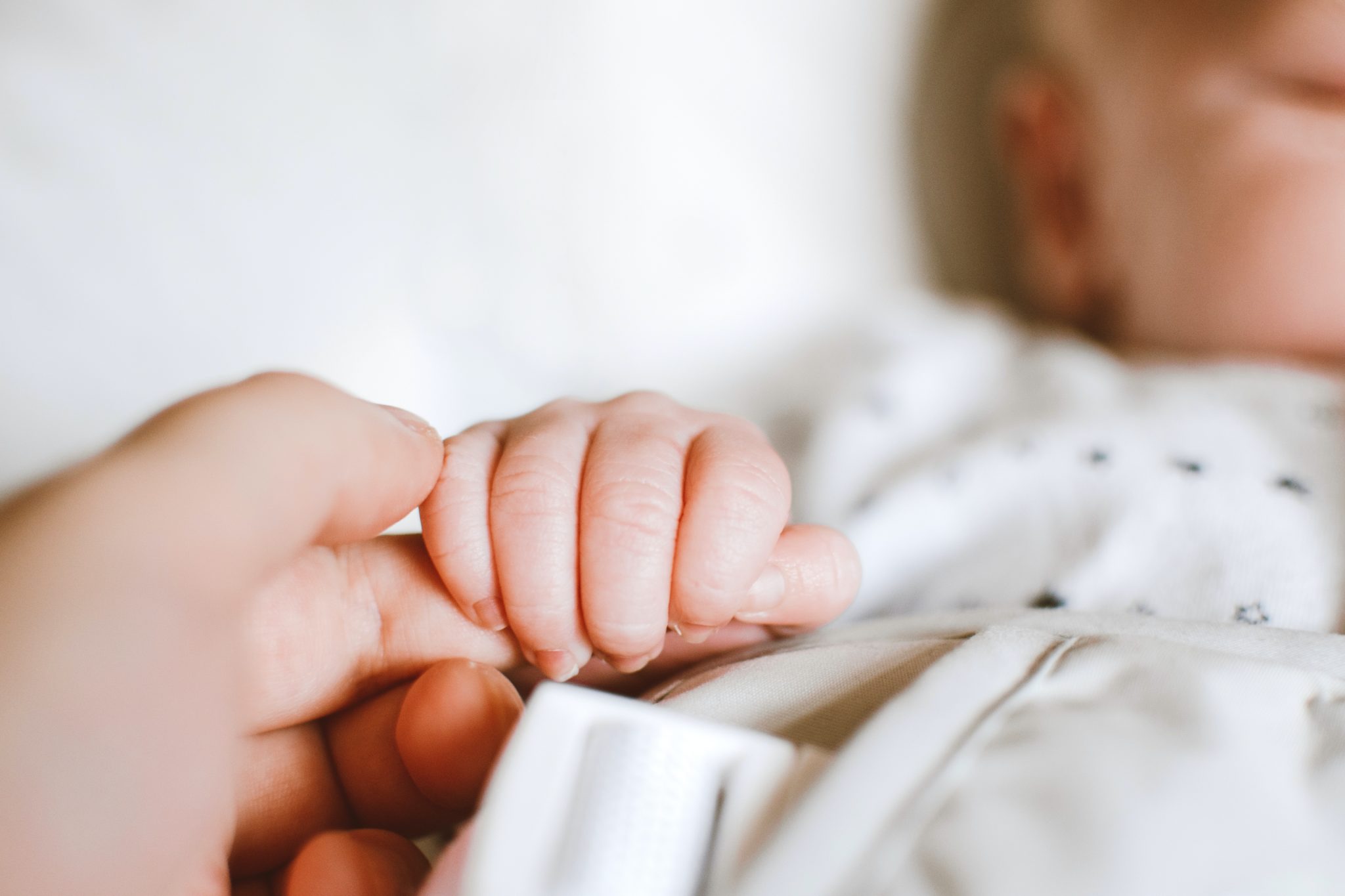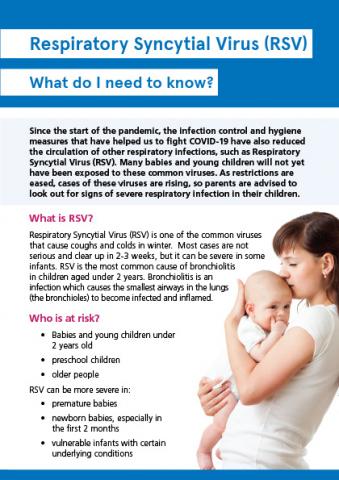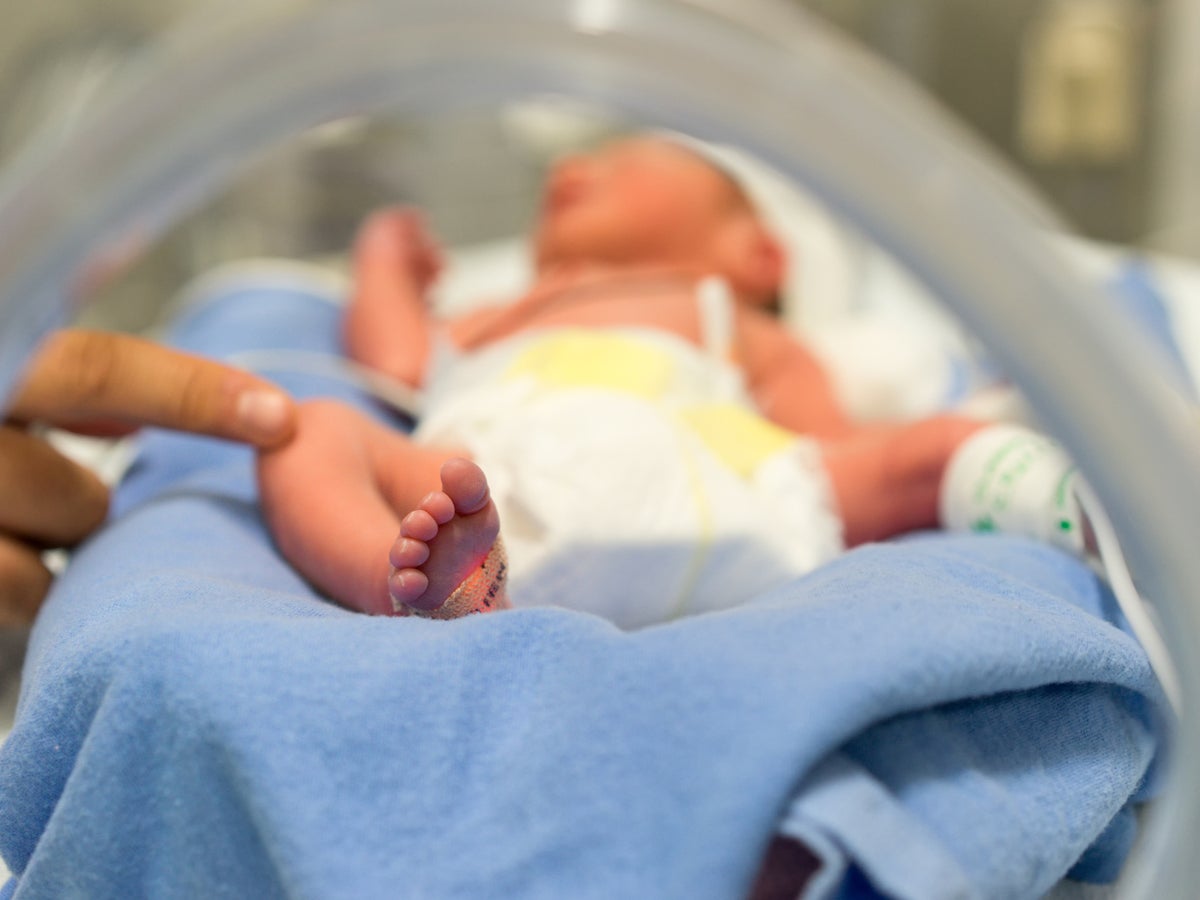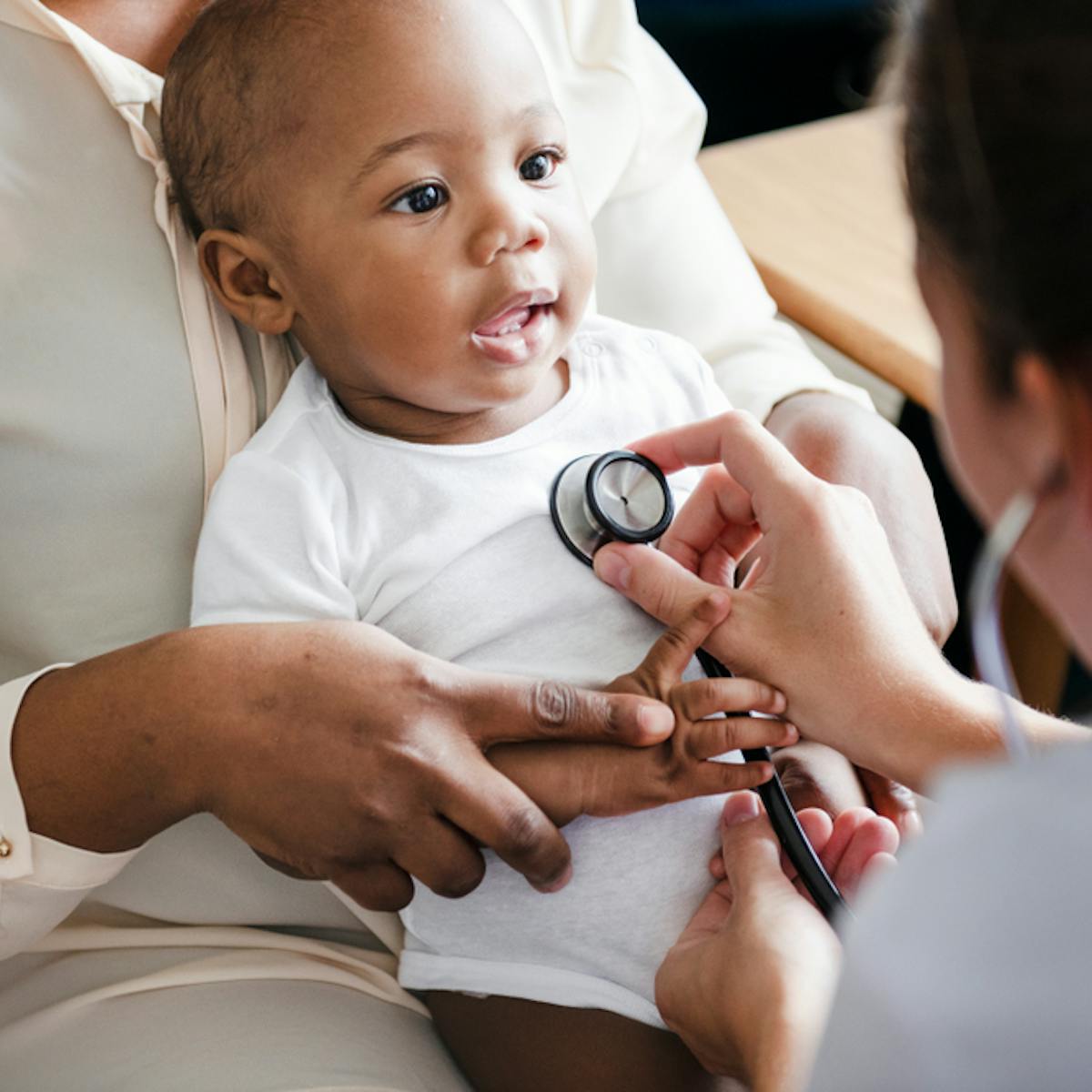rsv in babies nhs
For most babies and young children the. In older children and adults RSV may cause a cough or cold but in young children it can cause bronchiolitis.

Know The Signs And Symptoms Of Rsv Doncaster And Bassetlaw Teaching Hospitals
Luckily in most cases it will only cause cold-like symptoms.

. What is RSV in babies. Respiratory syncytial virus RSV is a common and very contagious virus that infects the respiratory tract of most children before their second birthday. Short shallow and rapid breathing Struggling to breathe chest muscles and skin pull inward with each breath Cough.
In the vast majority of cases these illnesses wont be serious and they will soon recover. Almost all children have had it by the time theyre 2. Signs and symptoms of severe RSV infection in infants include.
RSVor respiratory syncytial virus causes an upper respiratory infection. All parents and carers of babies and young children need to be aware of the signs of RSV. RSV is one of the most common viruses which causes bronchiolitis.
Bronchiolitis is almost always caused by a viral infection. Almost all will have had it by the time they are two. A small number of individuals particularly children under 5 years of age older age groups and individuals with chronic health conditions can be sufficiently unwell that they require admission to hospital.
If you are worried about your child call your GP or NHS 111 and if they have problems breathing then call 999 straight away Health Minister Eluned Morgan said. Congested or runny nose Dry cough Low-grade fever Sore throat Sneezing Headache However it can spread to the lower respiratory. Babies born prematurely or with heart lung or immune system diseases.
It may cause a cough or cold but for some it can lead to bronchiolitis an inflammatory infection of the. RSV is most common in infants between 2 and 8 months of age. Infants are most severely affected by RSV.
RSV is very common and spreads easily in coughs and sneezes. RSV respiratory syncytial virus is a common virus that spreads primarily among children but can affect adults too. In fact RSV is so common that nearly all children get the infection by the time they reach 3 years old.
It causes infections in the lungs and respiratory tract. However it can also cause a more serious lung infection called pneumonia or bronchiolitis which affects the teeny-tiny airways in the lungs. Parents are being encouraged to look out for symptoms of severe infection in at-risk children including fever with a high temperature of 378C or above a dry and persistent cough difficulty.
This infection is often associated with young children. Bronchiolitis is caused by a viral infection usually the respiratory syncytial virus RSV. RSV infection is one of the most common reasons for young babies to be admitted to hospital.
It usually shows up as a mild cold and lasts for five to seven days. The virus can affect a person of any age but largely affects the very young and very old. Whilst most infections of RSV present as a simple cold in young babies RSV can cause difficulty in breathing and can be dangerous.
In older children and adults RSV may cause a cough or cold but in young children it can cause bronchiolitis. In adults and older children RSV is mild. RSV is a very common virus and almost all children are infected with it by the time theyre two years old.
Respiratory Syncytial Virus RSV is a germ that can cause infections of the airways. For protection against RSV babies. For a smaller number of children the RSV infection may lead to bronchiolitis which may need medical care.
Clinicians at both Doncaster Royal Infirmary and Bassetlaw are seeing an increase in respiratory illness in children as restrictions have eased and families begin to mix once again with cases higher than usual for this time of year and further increases expected over winter months. What Is Respiratory Syncytial Virus RSV. The British Lung Foundation says respiratory syncytial virus RSV could rebound in January after few cases last winter - but numbers are.
Ad Severe RSV Disease is Unpredictable Any Infant can be Hospitalized in their First Season. Respiratory syncytial virus is very common in the UK and will infect most children before the age of two often leading to a mild cough and. Respiratory syncytial virus RSV is a common and very contagious virus that infects the respiratory tract of most children before their second.
RSV often occurs in yearly outbreaks and is most common in winter and early spring months. Three in 100 children who catch respiratory syncytial virus. Symptoms of RSV in.
Its Time to Speak out for All Infants Against the Impact of Severe RSV Disease. They suggested that parents should call NHS 111 or their GP if they are concerned. In most cases the respiratory syncytial virus RSV is responsible.
This guidance has been developed to support the redeployment planning processes to respond to the anticipated earlier and greater than usual increase in respiratory syncytial virus RSV and other respiratory illnesses in children which could increase pressure on paediatric critical and inpatient care. RSV is a viral infection that mostly results in a mild self-limiting illness. RSV is common in babies and children.
What causes RSV in newborns.

Signs That Your Child Has Rsv And Not Just A Cold Children Kids Health Kids And Parenting

Parents Warned Over Virus That Affects Babies And Children Cambridgeshire Live

Royal Berkshire Nhs Foundation Trust Respiratory Infections In Young Children Such As Respiratory Syncytial Virus Rsv Have Begun To Rise Out Of Season Read More About The Symptoms Transmission And Prevention

Bronchiolitis In Babies What Should You Do Channel Mum Youtube

Know The Signs And Symptoms Of Respiratory Syncytial Virus Rsv Doncaster And Bassetlaw Teaching Hospitals

What Is Rsv Symptoms Of Respiratory Syncytial Virus Explained And Why Nhs Expects An Outbreak This Winter Nationalworld

Respiratory Syncytial Virus Rsv What Do I Need To Know Hsc Public Health Agency

Medical Sciences On Twitter October Is Rsvawarenessmonth Respiratory Syncytial Virus Is The Most Common Viral Cause Of The Common Cold And Chest Infections In Infants There Is Currently No Treatment To Cure

Colds And How To Help Your Toddler Or Young Child Feel Better Babycenter

Nhs Greater Glasgow And Clyde On Twitter Rt P H S Official Respiratory Syncytial Virus Rsv Is A Common Virus That Causes Cold And Flu Symptoms In Babies And Children And Modera Twitter

Nhs Expands Immunisation Against Childhood Virus Amid Fears Of 50 Per Cent Surge In Cases The Independent

A Weekly Look At Premature Babies And Complications Premature Baby Baby Weeks Preemie Babies

The Virus Every Parent Needs To Know About Netmums
:max_bytes(150000):strip_icc()/GettyImages-854287660-b71e81cb670d4c5ca55526c44ab7130e.jpg)
Newborn Cold What You Should Know

Rsv Respiratory Syncytial Virus What Parents Should Know Youtube
